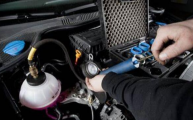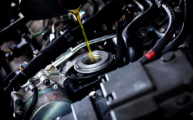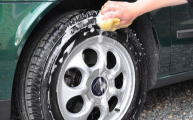Tips to Maintain the Car Paint in Summer
The painting of cars suffers, especially during the summer. This result is the conclusion of the experts in sheet metal and car paint from the network of Certified First specialist workshops that point to saltpeter, sand, and insects as some of the main great enemies against whom you should protect your car’s paint this holiday season.
Summer is a time for cars, high temperatures, and recurring visits to unusual areas where elements such as the sand of the beaches or the saltpeter of the coastal areas can significantly affect the conservation and good condition of your car’s paint. Although the paints have a series of protective layers from the factory, it is worth taking a series of precautions that can prevent us from greater evils.

Sun
The best of all is to always bet on parking the vehicle covered by solar radiation. Looking for the shadow will be something that in addition to being grateful when we get back into the car, they will appreciate the different materials with which our car has been built and especially the paint.
The continuous hours of exposure to the sun damage the paint, especially the surface layers, which are the ones that, in addition to protecting the lower layers, provide brightness and intensity to the color of our car. Leaving the car continuously in the sun can also cause the appearance of marks on the paint. Due to the incidence of sunlight, fences can create paint caused by the presence of stains or any other dirt. Discover our secrets.

Insects
In summer it is usual to make long trips by car. Normally, when we arrive at our destination, we have the entire front area of it dotted with the remains of countless insects stamped against the windshield, bonnet, and grille.
The last thing we think of when we get to the beach is to wash the car when we should do it as soon as possible, since that way it will be easier for us to remove them. Otherwise, the acids that give off their remains in combination with the sun can end up damaging the surface layers of the paint and, as we have already mentioned, leave a trace on it. The same happens with the depositions of the birds or the pollen of the flowers.

Washed
Washing the car after going to the beach, coastal areas, or where there is enough sand is a highly recommended action. In addition to maintaining its exterior appearance in good condition, we will prevent the saltpeter from the sea and the small particles of sand.
These elements are especially harmful since it is enough to slide your hand over the bodywork when it is covered with beach dirt so that the car’s paint is scratched and deteriorated, thus breaking the upper protective film and thereby accelerating the loss of brightness and color intensity
According to Certified First experts, in summer, it would be normal to wash the car once a week and take advantage of the first washings of the summer to give the car a layer of wax to protect to paint external aggressions and prevent them from damaging deeper layers.
-

How to Check Your Car’s Cooling System?
-

The Ford Mustang Shelby GT 350R Is Upgraded on Parts
-

Small SUV Has Big Power: 2020 Ford Escape First Drive Review
-

The Reasons Why a Car Loses Oil
-

New Ford Ranger 2020 Launched: Some Improvements and Technology
-

Ford Launched a Teaser to Its New Pick-up Truck
-

Ford Announced to Stop Selling Ka + in the United States
-

LEDs has a great future on Automotive Lighting
-

Tips to Help You Clean Car Tires by Yourself
-

Tips to Maintain the Car Paint in Summer

Leave a Reply